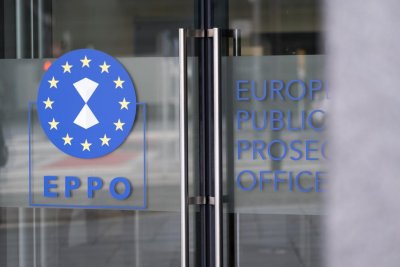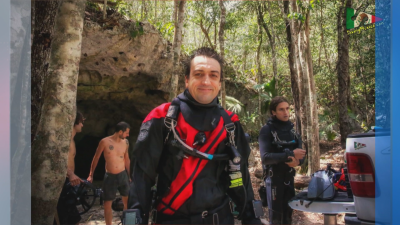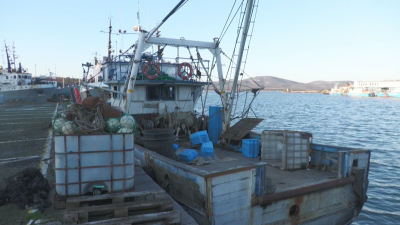Sofia Municipality has received an official letter from Ecobulpack AD stating that the company intends to suspend servicing the coloured recycling containers for waste separation in 16 districts of the capital — including Bankya, Vitosha, Vrabnitsa, Vazrazhdane, Izgrev, Ilinden, Krasna Polyana, Kremikovtsi, Lozenets, Lyulin, Ovcha Kupel, Nadezhda, Pancharevo, Poduyane, Serdika and Slatina.
Ecobulpack is one of the packaging waste recovery organisations under contract with the municipality to collect and recycle materials from the coloured containers, the press center of the Sofia Municipality reported on November 6.
According to a chronology provided by Sofia Municipality, the issue dates back to the start of the recent rubbish collection crisis in the Krasno Selo and Lyulin districts:
- 5 October 2025: A crisis rubbish collection plan was introduced in Lyulin and Krasno Selo after Mayor Vasil Terziev refused to sign a contract at what the municipality called an unjustifiably high price proposed by the winning bidder.
- 28 October 2025: Ecobulpack attempted to deposit four tonnes of rubbish from coloured containers at the Sofia Waste Treatment Plant (SWTP), labelling it as “household waste”. Laboratory testing, led by engineer Liliya Dimitrova, confirmed that the materials were recyclable and not household waste, and the load was rejected.
- 4 November 2025: The Mayor’s Office received a formal notice from Ecobulpack announcing its intention to cease servicing the coloured recycling bins in the listed districts.
The municipality stressed that burying or dumping recyclable waste such as plastics is “absolutely unacceptable”. Such practices, it said, cause environmental damage, release toxic substances into the soil and air, and pose direct health risks.
“That is why oversight of the Waste Treatment Plant has been at record levels over the past two years,” the statement read. “Sofia will not tolerate the burial of recyclable materials, regardless of pressure or attempts to bypass the rules.”
City officials described Ecobulpack’s decision as “unacceptable”, saying it lacked any contractual justification and amounted to “arbitrary action that violates the company’s obligations to both Sofia’s citizens and the producers who pay it to collect and recycle packaging waste.”
The municipality also noted that the company’s sudden withdrawal coincided with the crisis measures in Lyulin and Krasno Selo, raising “serious questions about its motives”.
According to data from the municipality, 35 tonnes of recyclables were collected in Lyulin during the first week of the temporary crisis plan — nearly double the 18 tonnes collected the week before. Officials argued that the increased oversight and more frequent bin servicing “clearly did not suit Ecobulpack”, describing its move as “an attempt to paralyse the waste collection system and undermine the city’s efforts to build a cleaner, more sustainable capital.”
This runs entirely counter to Sofia Municipality’s public commitment to promote separate waste collection and encourage active citizen participation in recycling. The city’s strategy is based precisely on these principles — more separate collection, less waste sent to landfill, and greater accountability from waste recovery organisations.
Sofia Municipality is calling on the Ministry of Environment and Water to take immediate action and exercise oversight over the activities of “Ecobulpack” and other waste recovery organisations, in order to ensure compliance with the law and the sustainability of the capital’s waste management system.
In contrast to the conduct of “Ecobulpack”, the Sofia Waste Treatment Plant (SWTP) proves every day that it operates in the interest of citizens and in the protection of the environment.
In 2025, the Sofia Waste Treatment Plant reported a historic record: revenues from the sale of recyclable materials exceeded 1.75 million leva — nearly five times higher than in 2023. These results are a direct indicator of the effectiveness of the reforms introduced, the strengthened oversight, and the professionalism of the SWTP team, which ensures uninterrupted operations even under crisis conditions.
Sofia Municipality continues to defend the public interest in court, where it is pursuing legal action against waste recovery organisations that challenged the Sofia Municipal Council’s decision to raise requirements for such entities — a move aimed at improving recycling performance.
“Our goal is clear — fairness, transparency, and efficiency in waste management, without allowing any form of pressure or blackmail against the city and its citizens,” the municipality stated.
Sofia Municipality remains fully committed, using all available resources and powers, to ensuring that the city’s waste management system operates sustainably, transparently, and in the interest of residents. The city will not allow private interests to undermine its efforts for a cleaner, more modern, and recycling-oriented capital.
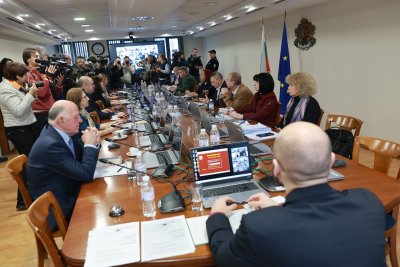

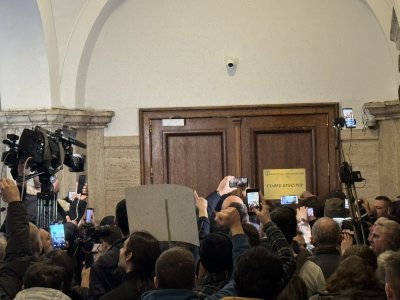

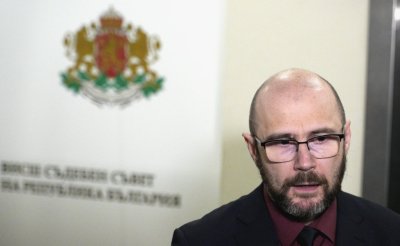






 Чуй новините
Чуй новините Подкаст
Подкаст

